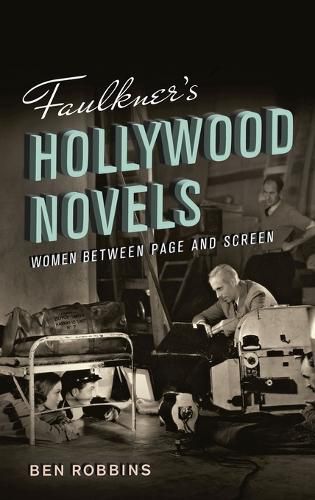Readings Newsletter
Become a Readings Member to make your shopping experience even easier.
Sign in or sign up for free!
You’re not far away from qualifying for FREE standard shipping within Australia
You’ve qualified for FREE standard shipping within Australia
The cart is loading…






Tracing the influence of Faulkner's screenwriting on his literary craft and depictions of women
William Faulkner's time as a Hollywood screenwriter has often been dismissed as little more than an intriguing interlude in the career of one of America's greatest novelists. Consequently, it has not received the wide-ranging critical examination it deserves. In Faulkner's Hollywood Novels, Ben Robbins provides an overdue thematic analysis by systematically tracing a dialogue of influence between Faulkner's literary fiction and screenwriting over a period of two decades. Among numerous insights, Robbins's work sheds valuable new light on Faulkner's treatment of female characters, both in his novels and in the films to which he contributed.
Drawing on extensive archival research, Robbins finds that Hollywood genre conventions and archetypes significantly influenced and reshaped Faulkner's craft after his involvement in the studio system. His work in the film industry also produced a deep exploration of the gendered dynamics of collaborative labor, genre formulae, and cultural hierarchies that materialized in both his Hollywood screenplays and his experimental fiction.
$9.00 standard shipping within Australia
FREE standard shipping within Australia for orders over $100.00
Express & International shipping calculated at checkout
Tracing the influence of Faulkner's screenwriting on his literary craft and depictions of women
William Faulkner's time as a Hollywood screenwriter has often been dismissed as little more than an intriguing interlude in the career of one of America's greatest novelists. Consequently, it has not received the wide-ranging critical examination it deserves. In Faulkner's Hollywood Novels, Ben Robbins provides an overdue thematic analysis by systematically tracing a dialogue of influence between Faulkner's literary fiction and screenwriting over a period of two decades. Among numerous insights, Robbins's work sheds valuable new light on Faulkner's treatment of female characters, both in his novels and in the films to which he contributed.
Drawing on extensive archival research, Robbins finds that Hollywood genre conventions and archetypes significantly influenced and reshaped Faulkner's craft after his involvement in the studio system. His work in the film industry also produced a deep exploration of the gendered dynamics of collaborative labor, genre formulae, and cultural hierarchies that materialized in both his Hollywood screenplays and his experimental fiction.